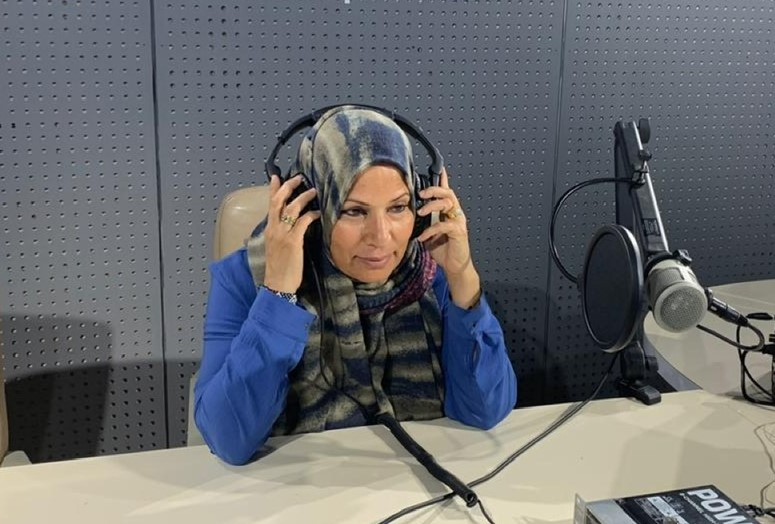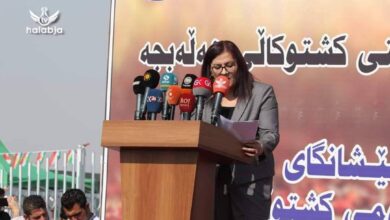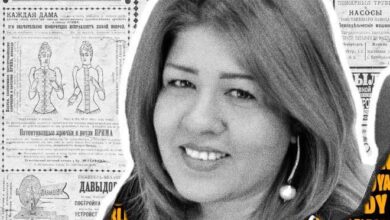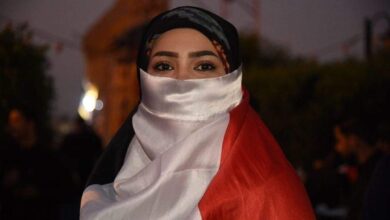For Iraq’s religious minorities, politics, discrimination and bigotry plays out in every aspect of life, including at the dinner table. Sometimes as a member of the majority, it’s hard to see.
By Kholoud al-Amiry
The night before I travelled to Halabja to meet her, my colleague who lives there called me on the phone. “My mother is going to cook dolma for lunch tomorrow to welcome you,” Rangeen said. “But I just wanted to check if you eat Kaka’i food. If you don’t, we can just go to a restaurant. It’s no problem.”
Rangeen Salam is a member of Iraq’s Kaka’i minority, who practice a religion that combines elements of Zoroastrianism and Shiite Islam but who tend to be secretive about their beliefs because, like many minorities in Iraq, they have been subject to persecution by the majority. Many Kaka’i also identify as being of Kurdish ethnicity. Meanwhile I’m a Shiite Muslim, a member of one of Iraq’s two majority populations (the other is Sunni Muslim).
Still, the question shocked me. I had never been asked such a thing before, and I have dined with friends and colleagues of many different ethnicities and faiths. I paused before I answered Rangeen. But of course, I could eat Kaka’i food and I have never had any problem with food prepared by those of other religions.
That night I thought a lot about what Rangeen had asked and I decided to write this article. The feeling that the society you live in may not accept you is a painful thing. I don’t know how I would feel if I was in Rangeen’s position.
The next day I traveled from Baghdad to Halabja and after we had a lunch of dolma – it’s a very common Iraqi meal of stuffed vegetables and rice – and drank tea, as all Iraqi families of all religions do, we went out to look around this small town. Halabja is in the semi-autonomous northern region of Iraqi Kurdistan and is infamous for being the site of an attack with chemical weapons by former dictator Saddam Hussein in 1988.
After an hour of looking around, we settled down at a lovely café that was popular with the young people of the town.
While we were sitting there I asked Rangeen why she had asked me whether I would eat her family’s food. “Because most of my female friends at work won’t,” she explained. “We shake hands and we even hug sometimes but when it comes to meals, nobody will eat something prepared by a Kaka’i.”
Rangeen has worked as a teacher and as a radio journalist for nine years but her friends and colleagues have never accepted an invitation to come to her home and eat with her family. So she had tried to avoid any embarrassment by asking me if I had any objection to Kaka’i food, before I arrived. She knew I was of a different religion.
And this is all despite the fact that the food itself is no different! In Iraq, dolma is almost the same everywhere. My only preference with dolma is that I like to add more tomato. But it’s certainly not like there are forbidden ingredients – for example, Muslims may not drink alcohol or eat pork – in the dish.
I was struck by what Rangeen told me, so I asked other friends and colleagues about this.
“I face the same attitude from my fellow journalists,” a Yazidi journalist, Naveen, told me; the Yazidi are another ethno-religious minority in Iraq. She works for a radio station that caters mostly to displaced Iraqis living in the northern city of Erbil. “They refuse to eat with me and always come up with excuses to avoid sitting with me at mealtimes, even though they often dine together. Sometimes I feel like they’re not that different from [the extremist group] Islamic State and their ideas.”
Iraq’s Yazidis also tend to keep their religious practices secret and have also persecuted because of this. Prejudiced Iraqis have the false impression that the Yazidis are devil worshippers and the minority has been horribly persecuted because of their beliefs. The prejudice runs deep. In 2014, when the extremist Sunni Muslim group, the Islamic State, invaded their towns in northern Iraq, their religion was the reason that the extremists thought they could do what they wanted with the Yazidis. The Islamic State thought they had to respect the “people of the book” – so that is, Christians and Muslims. But because the Yazidis had their own set of beliefs, they were subjected to enslavement, kidnapping, torture and murder.
When friends come to a Yazidi funeral they will often leave early, Naveen has noticed, before any food is served. And when the young journalist has attended workshops held by international and local organizations, she’s often found herself embarrassed because none of the other participants are willing to share a hotel room with her.
“Many of my colleagues ask to share rooms with others or ask for separate rooms when they find their names paired with mine for the same room,” Naveen continues. “I feel rejected and sometimes I do cry.”
Naveen has taken to asking workshop organizers whether there are single rooms available. Sometimes she has even turned invitations down.
“I just feel so much psychological pressure when they refuse to share a room, just because of my religion,” she explains. Naveen wishes she could just tell her colleagues not to worry and to put aside their prejudices. Her messages would be, she says, ” don’t be disgusted when we cook food. We are all human beings!”
Benavesh, another Yazidi journalist, has a different way of dealing with this kind of rejection. “Since I was small, I have known that others do not accept our food,” she explains. “So I never took food with me to university and I do not bring food to work now.”
When she attends workshops where overnight stays are required she is upfront about asking to share with another Yazidi girl. “So I don’t get rejected,” she argues. “And actually I’m really used to it.”
Additionally Benavesh says the prejudice can go both ways. “My family would prefer that I share the room with a Yazidi girl too because we have similar customs and we are more accepting of one another.”
Despite all this, Benavesh wishes that things would change in Iraq. “I’m used to sharing food and rooms with other Yazidis but I would be so happy to bring food to share with my Muslim colleagues,” she concludes. “That would make me very happy.”
This article was written by journalist Khuloud al-Amiry, editor-in-chief of the Al-Menassa news website, which is dedicated to building peace and coexistence between religions and Iraqi components.





